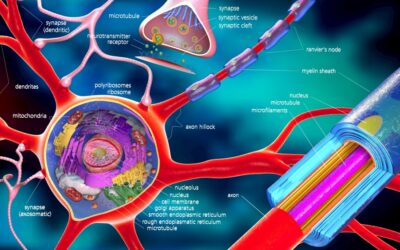Water is essential for life, but not all water is created equal. Tap water can contain harmful contaminants and chemicals that can have adverse effects on our health. This is where reverse osmosis water purification comes in. Reverse osmosis (RO) is a highly effective water purification process that removes impurities from water. But can you have too much of a good thing? Maybe. Let’s take a deeper look as to whether or not a RO water purification system is right for you.
Carbon Water Filters
Carbon filters use a process called absorption to trap contaminants allowing only small particles to pass through. And to be clear, these are considered one of the most effective forms of water filtration. Carbon filters are found in many of the name brand pitchers such as Pur. They are also the most popular choice for home purification systems. Most likely because they are much cheaper than a reverse osmosis water purification system.
However, reverse osmosis systems are gaining popularity so I thought it would be worth it to investigate what all the hype is about.
What is reverse osmosis water purification?
Reverse osmosis (RO) is a water purification is a multistage filtration process that removes impurities from water by using a semi-permeable membrane.
This process includes:
- Sediment pre-filter
- Activated carbon filter
- Semi-permeable membrane
- Post carbon filter.
The semi-permeable membrane filters out potential harmful molecules as small a water is forced through a 0.00001 micron pore (yeah, pretty small). This process is highly effective in removing contaminants such as bacteria, viruses, dissolved salts, and other harmful substances from water.
Is Reverse Osmosis Good For Your Health?
Reverse osmosis water purification might be beneficial for some people, but it definitely has its drawbacks. Lets start with the potential health benefits
Health Benefits of Reverse Osmosis Water Filtration
Firstly, RO water is free from harmful contaminants that can cause serious health problems. Contaminants such as lead, arsenic, fluoride, and chlorine are commonly found in tap water. These contaminants can cause a range of health problems such as cancer, kidney damage, and neurological disorders. RO water purification removes these contaminants, making the water safe for consumption.
Secondly, RO water is free from harmful chemicals used to treat drinking water. Many water treatment plants use chemicals such as chlorine and fluoride to treat water. These chemicals can have adverse effects on health, especially if consumed in large quantities. RO water purification removes these chemicals, making the water safe for consumption.
Thirdly, RO water might be beneficial for people with weakened immune systems. People with weakened immune systems are more susceptible to infections and diseases. RO water purification removes harmful bacteria and viruses from water, reducing the risk of infections and diseases.
Fourthly, RO water is beneficial for people with allergies and sensitivities. Allergens are a type of molecule that causes an abnormal immune response in which the immune system fights off a perceived threat that is not harmful. Some people are allergic to certain chemicals and substances found in tap water. RO water purification removes these substances, making the water safe for consumption for people with allergies and sensitivities.
All of that said, there are some downsides to RO.
Potential Health Risks of Reverse Osmosis Filtration Systems
There are some disadvantages to this type of filtration system. Number one being that it might be too good and filtering out small particles. In other words, not only does RO filter out potentially harmful molecules, it also filters out minerals that our bodies need. Mainly iron and magnesium.
This also has implications when cooking with RO water. Since the water is now lacking in these trace minerals it might actually pull those minerals from the food. No Bueno 😔
And one final downside to RO, not related to health, is they are much more expensive than carbon filtrations systems.
Conclusion
In conclusion, reverse osmosis water purification might be beneficial if you live in an area where your primary source of drinking water is well water or you are concerned about pesticides and other harmful chemicals possibly getting into your water supply. For now, I think I feel pretty comfortable with my good ole Pur water pitcher. 😊
Neuroinflammation: Implications in Brain Health and Disease
Neuroinflammation is a broad term that is characterized by an immune response in the central nervous system (CNS) - the brain and spinal cord. This abnormal immune response is initiated by cues including infection, bacteria, brain injury, toxins and autoimmunity. ...
Mitochondrial Dysfunction in Multiple Sclerosis
Multiple sclerosis, also known as encephalomyelitis disseminata is a neurodegenerative disease characterized by damage to the white matter in the brain and spinal cord (central nervous system. The mitochondria are implicated in MS disease progression. With that said,...
Mitochondria: Key to Brain Health
Within every cell of the human body is a pool of structures called mitochondria, often referred to as the “powerhouse” of the cell (generating 90% of the body’s energy). In recent years mitochondria have been credited for brain health and optimal performance. On the...
Best Brain Exercises For Stroke Recovery
Best Brain Exercises For Stroke Recovery A stroke can cause long-term damage to the brain, impair movement, and significantly diminish cognitive abilities. Mobility and strength training to retrain the muscles after a stroke is a huge part of the stroke recovery...





